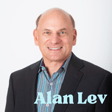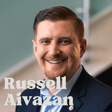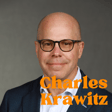Introduction to Brandon Hall and Hall CPA
00:00:27
Speaker
Hall is a name that you might recognize if you've spent any time at all on some of Bigger Pockets' platforms or really if you've done any generalized exploring of the online real estate education space. He is the
Growth and Coaching in Accounting
00:00:40
Speaker
owner and founder of Hall CPA, which is a firm based in North Carolina that offers real estate investors with tax, accounting, and other financial services.
00:00:50
Speaker
Hall has been extremely successful in growing his practice, so much so that he now coaches other accounting firm owners about strategizing for expansion within the same service sector. My conversation with him today is in short exactly why I wanted to start a podcast in the first place.
Corporate vs. Entrepreneurial Accounting: Which Path?
00:01:08
Speaker
an absolute plethora of insight on what it can be like to work in corporate accounting as a highly ambitious individual and about some of the pitfalls of public education, but nevertheless why you actually should consider prioritizing a college degree. He speaks on why becoming an entrepreneurial accountant or really pursuing entrepreneurship in general might be for you, as well as about his own journey with real estate investing.
Insights on Wealth and Career Advancement
00:01:34
Speaker
insights into the wealth and behavioral patterns of his many successful clients, gives tips on exactly how to earn your promotions and raises at work,
00:01:43
Speaker
or just to generally give your job the kind of purpose and direction that it might be currently lacking. We speak very frankly about what it takes to achieve disproportionate success among your peers. And this is all information that applies to fields far outside of accounting and finance. It's all
Target Audience: Young Professionals
00:02:00
Speaker
geared towards curious and hungry young professionals. So if you enjoy this episode even half as much as I did recording it, you're in for a great hour.
00:02:13
Speaker
Alrighty, can we just dive right in? Do you want to cover anything before we start? Let's go for it. Alright. So Brandon, if you could introduce yourself for my guests, when it comes to what you do with your CPA firm, some things that you've done for that, what you're interested in personally, that would be awesome. Okay, sure.
Brandon's Career Journey: From Corporate to Entrepreneurship
00:02:31
Speaker
My name is Brandon Wall. I am a CPA, focusing on tax and accounting for real estate investors and landlords.
00:02:40
Speaker
I started the firm back in, I guess technically 2015. I went full-time into it in 2016. Prior to going into the firm full-time, I was working at Ernst & Young and then prior to that, PricewaterhouseCoopers. I've since grown the firm to I believe will end the year this year with about 50 US employees and probably
00:03:03
Speaker
30 or so offshore. So nice growth, becoming a bigger firm. Anything else you want to know? Yeah. Why did you transition from corporate into kind of the entrepreneurial realm? How long did you work in consulting on top of that? Yeah. So I started my consulting career in 2013. I graduated from college in 2013. And then I started with PricewaterhouseCoopers. And I worked there for about a year and a half
00:03:33
Speaker
I believe, and then worked at Ernst & Young for about another year and a half. So I did about three years total in the big four consulting world. We were consulting
Consulting Experience with Federal Agencies
00:03:44
Speaker
federal agencies. So it was in consulting is kind of like a funny term. I mean, it depended on the project. Some projects were truly consulting.
00:03:56
Speaker
but most of the projects were like long-term internal audit projects. So not very consulting and also not very exciting, but did that for about three years. And during some, there was overlap of trying to launch my own business. Like I just knew kind of early on that I didn't want to stay in this type of an environment for a long,
00:04:21
Speaker
amount of time. I wanted
Desire for Freedom and Flexibility
00:04:22
Speaker
more freedom. I wanted my own flexibility. Nobody really cared about me or my career. Everybody just cares about themselves, which is natural. So don't fault anybody for it. But had they kind of recognized that I wanted to do a lot more with my life and with my career,
00:04:45
Speaker
And catered to that, I don't know that I would have left, only because I don't know what that would have looked like. And I think about that a lot with my own employees. It's like if I end up hiring somebody like me who's young and ambitious, how do you cater to that so that they stay on your platform? If you can show them how to achieve success without taking all the risk that I took,
00:05:13
Speaker
I think that there's, there's some mutual benefits there. Sure. While
Corporate Culture and Career Discussions
00:05:18
Speaker
you were working in corporate then, was it kind of the situation where you were voicing your ambitions to superiors, but they were just not hearing you out or not giving you opportunities or was there kind of more of an omnipresent culture of like, well, you just don't talk about what you want to be doing outside of your W two. Oh yeah. You definitely don't talk about what you want to be doing outside of your W two. So everything had to be,
00:05:40
Speaker
career, all of the growth conversations and the goal conversations had to be career oriented, and they had to be, you know, beneficial to the firm. And that was true in both both firms. Now, had I stayed at either one of those firms for a longer period of time and worked my way up to a sense where I have more political capital and pull, perhaps the conversation changes, right? Like
00:06:10
Speaker
You know, if you're a manager, a senior manager, and you're well-respected, and you have a lot of, you can point to a lot of success that you've driven, well, talking to people about, hey, I wanna make $500,000, all of a sudden isn't like that ludicrous, and you might actually have people supporting you in trying to get there. But I never made it that far, so I don't know. It could be that way, but I don't know.
00:06:38
Speaker
No, my conversations were very surface level. It was typically, you know, how do you produce at the required level for the next quarter, next six months, very short term. There were opportunities for me to switch projects and teams and try new things. And those were initially encouraged, but
00:07:01
Speaker
The problem that I found is that when you are a, I don't necessarily want to call myself a top performer, but top 20%, top 15%, something like that, your managers don't want to lose you.
00:07:21
Speaker
So they end up fighting against your wishes. And this is probably just how this division was structured, because I know that there are other companies that have actual programs to move you around and let you explore a lot of different things, but that was not my experience. My experience, I believe, was probably the more traditional
00:07:45
Speaker
corporate, I'll call it, experience where if you're good, your managers will fight to keep you on their team, which is short term thinking because eventually they lose you and the whole firm loses you. Were you investing in real estate at this point or was it kind of something you came to after you left corporate as an attempt to have more stable income?
Building Financial Independence through Real Estate
00:08:10
Speaker
three months into my career at PwC, which was 2013, it's like five months after I graduated, I was like, man, this thing is just not going to work out for me. I know myself, I don't want to sit here in grind mode taking orders for 15 years to achieve what I want. I don't want to work. So I tried to figure out
00:08:36
Speaker
how to create income streams that would enable me to gain financial independence and quit my job. Through that process, I found rental real estate. I did not invest in rental real estate while I was at PwC, but about the time that I was switching over to Ernst & Young, I bought my first property.
First Property Purchase Experience
00:08:59
Speaker
three unit property in Hickory, North Carolina, I still own it today. I put like $30,000 into it between the down payment and this is back in 2015. In 2015, everybody was talking about how high prices were, by the way. There's a lesson in there, right? So everybody's talking today about how high prices are. But even back in 2015, I remember going, man,
00:09:23
Speaker
30 is a three unit property. So I bought it for about 90K, $30,000 a unit is what I paid. And investors at the time were like two years ago, it was all $20,000 a unit. Holy crap, prices are crazy. So there's a lesson. But I bought that three unit property, put about 30,000 into it between down payment and some improvements. And it cash flowed $700 a month, which for me at the time was amazing. I was earning I think 60,
00:09:53
Speaker
562 something like that $1,000. So $700 a month in free cash flow was phenomenal. So I was really excited about it. Then I sat down and I did some math and I realized in order to replace my salary,
00:10:09
Speaker
and create a cushion for capex because if you're buying a bunch of rentals and you're living on the cashflow, you don't want to not be able to eat for one month when an HVAC goes out. So you've got to reserve some capex. So I did all this math and I realized, man, I'm going to have to do this for like 12 years. Just to kind of get to where my salary is at today, but 12 years from now,
00:10:39
Speaker
Hopefully I'll be making several hundred thousand dollars. So the portfolio will actually have to be that much larger. And I kind of came to the conclusion that for me, rental real estate was a great way to passively invest and build wealth, but it was not going to be what creates financial freedom. And how did you end up getting into real estate in the first place? Like I realized it's not kind of the vehicle that you ended up settling on to actually make your money long-term.
00:11:06
Speaker
And as a young kid, was it like a bigger pockets type introduction or a mentor, a friend who was a couple of years into this journey already? Yeah. So when I was in college, I had the opportunity. I took this really hard finance class.
00:11:21
Speaker
And the guy leading the class, his name was Eli Baraha. I believe he's a PhD and I believe he teaches down in Florida somewhere now. But he was so good at financial modeling and underwriting real estate. So I got to know him, had lunches and coffees with him, and he would tell me all about the portfolio and stuff. So that kind of gave me the itch at the beginning.
00:11:46
Speaker
And then I just kind of leveraged that in 2013 as I was trying to figure out how do you, how do you get out of your corporate job? And through that process in 2013, when I was trying to figure out how to get out of my corporate job, I found bigger pockets. And initially I was asking questions about buying my own rental real estate on bigger pockets.
00:12:06
Speaker
But, uh, but then I realized there were a lot of people asking tax questions. I didn't know anything about tax, but I was studying for my CPA. So I figured why not? I'll just try to start answering people's tax questions. And that created this, this, uh, this feedback loop that became highly addicting because it was all these people telling you how great you are and thank you so much. And you know, you're so smart and stuff. And I wasn't getting any of that anywhere else. So I just,
00:12:33
Speaker
became addicted to answering questions on this online forum about tax questions. It's crazy, but that snowballed into people reaching out, asking if I would take them on as clients, and eventually I started saying yes, and that we don't need to fast forward, but that's what I did in 2015, and I kind of slow launched a firm.
00:12:57
Speaker
Yeah. So your ambitions as
Niche Focus: Real Estate Investors
00:12:59
Speaker
you launched Hall CPA were to from the start work exclusively with real estate investors or were you still kind of open to the idea of being more of an open practice? Yeah. So the idea, and it was kind of scary to do this, but the idea was I'm only going to work with real estate investors. Um, I, I had enough people reaching out to me before I said yes, that I figured I can make $80,000 a year.
00:13:26
Speaker
just by working with a small group of real estate investors. And I just, at the time at least, there were really no other accountants. There was like one other account, two other accountants. No, there's only really one. No, there were two other accountants on the forums. So it was Blue Ocean. I mean, I set up all my keyword alerts to make sure that I was the first one responding. So I just figured I'd out hustle the other two accountants and I'd win a lot of clients as a result on the bigger pockets forums.
00:13:56
Speaker
Now it's a lot more saturated. I don't think that you could deploy the same approach on the Bigger Pockets forums today. And I look at this for my own employees who are very ambitious. It's like, okay, where do we deploy your time so that you can build brand and build a community and kind of drive similar results? But yeah, at the beginning it was just, it was, there weren't many accountants doing it. So,
00:14:22
Speaker
So I decided to niche in real estate because the competition was nil. There was nobody to compete with, aside from those two accounts. Right. Nowadays, I'm curious, where does your primary new client flow come from? Is it mostly word of mouth at this point? Or do
Digital Marketing and Client Acquisition
00:14:40
Speaker
you guys have to do very little on that front? Yeah. I mean, we don't do anything word of mouth wise. So we get about 400 web form submissions a month to become- Wow.
00:14:52
Speaker
Yeah. 70% of them are qualified based on their web form submission, meaning that they have a portfolio, they have a good income, they have a good net worth. There are things that we can do to help them. Of the total that are qualified, I think it's of the total that are qualified, I might be messing these percentages up, but basically 10%
00:15:17
Speaker
of all of those people are word of mouth referrals. So we have some decent referrals, but we don't really have campaigns around referrals. We don't push referrals. It's just if clients love the service, they refer.
00:15:32
Speaker
And that's very anti what other firms do. Most firms are solely referral based because they don't know how to do the digital marketing. For us, most of our leads come from digital marketing. So we have a podcast that has 130,000 downloads a month. It's a tax smart real estate investor podcast. So it's geared for landlords. We really try to break down complex tax topics that they understand. We've got a blog that's got
00:16:00
Speaker
20 or 30,000 visits a month. We guest post on a bunch of different websites, including BiggerPockets. We guest speak on a bunch of different websites, including BiggerPockets and private webinars and communities and things like that. So we try to be omnipresent with our content.
00:16:19
Speaker
And that puts so much less pressure on your individual interactions with each client, right? Like you work with them. There's really no, I guess, a need for you guys to press them, referring you more business, which is, which is kind of nice for everybody. Cause if you're offering a good service, they stay with you forever, right? Like you don't, you don't need to worry about anything else. Yeah, yeah, exactly. That's the idea. Uh, now, you know, we've gone through seasons, I call them in our firm where we have no idea how to deliver well to clients. We make a lot of people mad.
00:16:49
Speaker
But we're in the good season right now, so we've actually figured out a lot of the client service. And that's probably a recent thing as of the past 18 months or so, where our referrals have started drastically up-ticking because clients are so happy with what they've got now coming from us. But I can't say that was the same back in 2017, 18, 19, when I was trying to figure it all out. And Rick is sort of putting the duct tape on the plane as you're flying it.
00:17:17
Speaker
Very, very true. And the process of growing as quickly as you are means that you can afford to hire a lot more people to deal with these things for you, right? Which I'm sure is drastically different than the situation was when you first started. Yeah,
Hiring for Better Pricing and Management
00:17:32
Speaker
you know, I actually think about this every once in a while because I now coach some firm owners and try to help them think through how to scale.
00:17:41
Speaker
The reality is that I could always afford to hire the higher end technical people. And had I done that, I would have priced better at the beginning. I would have sold projects better at the beginning. It would have forced me to. And the higher end technical people could have hired everybody else that they needed on the team to support them.
00:18:02
Speaker
But what I did, which is what most people do when they're starting a business, is you do all the work yourself because you're trying to figure it out. You're trying to preserve cash flow. You're scared to make the investment. And that's really the wrong way to do it. Now, I don't know that I have this perspective now because I brute forced it, because I did everything myself, because I worked 80 hour weeks for three and a half years nonstop.
00:18:31
Speaker
but I would not do it that way again. So if I were to start a firm again, I would start by hiring $150,000 a year resource that is great and can handle the delivery and can talk to clients effectively. And I would go out and try to sell and staff or fully staff them up, fill their capacity up with the sales that I'm able to do. Uh, and I would just continue trying to sell while they build their team of professionals. So, so yeah,
00:19:01
Speaker
I guess to answer your question, I could, it's easier now to see where those investments should be, which helps us to further deliver better services to clients. But that's a recent thing for me of the basically past 18 months, right? So I mean, I hired a VP of operations that cost me a significant amount of money. I hired all these like admin roles that cost a significant amount of money in the aggregate.
00:19:28
Speaker
And you, you don't want to spend that money at the beginning, but if I had to do it all over again, I would have spent that money at the beginning. Now that you're in this objectively successful position and able to delegate just so much of what you weren't previously able to, what does your day to day look like as a principal accountant? Like what are your primary obligations? Oh, so it's kind of like jumping on podcasts like this, uh, speaking opportunities, anytime that I get a chance to
00:19:56
Speaker
tell my story, either just my entrepreneurial journey or talk about tax planning and strategies. I take those opportunities. It's a lot of coaching employees. That's probably 20 to 30 hours of my week at this point is just coaching people through
00:20:15
Speaker
problems and scenarios. Some of those are scheduled calls. Most of them are unscheduled. And then it's really just higher level things that need to get done, like working with legal on engagement letters and the employee handbook, making sure that we have systems in place to remind us of important events such as renewing insurance and things like that. And then anything
00:20:45
Speaker
that's kind of outside the scope of my VP of operation than anybody else on the team. So I find myself working on a lot of little projects that are valuable projects, but they just pop up randomly. Okay, got it. This whole discussion and specifically your focus on coaching employees is something that I do want to focus on for a few minutes before I ask you a little bit more about coaching.
00:21:12
Speaker
your college experience and upbringing. What you're describing about having started off in corporate and feeling a little bit or very, I guess, stifled over the course of your first few years there is such a familiar story. And
Seeking Growth Beyond Corporate Roles
00:21:28
Speaker
while I am really lucky to be in a small, lean company as of now, I'm not personally dealing with that struggle.
00:21:34
Speaker
I know tons of people working in downtown Chicago who do feel that way, that they're not performing their team, they want to be paid more, they want to be given more responsibilities, and they feel caged by managers or other team members who don't want to hear them out. How do you as a business owner actually speak to people in positions like that? What are the kinds of opportunities that you give them for growth?
00:21:58
Speaker
If you have advice for people like that who are working in real estate or peripherally in consulting, should they just leave their jobs if there's kind of no way for them to make their jobs more amenable? Like what are your thoughts on all this? So the
Hard Work and Realistic Goals: A Critique
00:22:14
Speaker
first thing that I'm going to say, this is going to be a punch in the face to everybody. And I also realized that you might not like what I'm about to say, and I'm a business owner and you might be as the enemy after this, but
00:22:25
Speaker
The reality is, is that a lot of people do not want to work as hard as they need to, to accomplish the goals that they have set out for themselves, if they even have goals. A lot of people don't even have
Philosophy of Outworking the Competition
00:22:39
Speaker
goals, but a lot of people don't want to work as hard as they need to, to accomplish the goals that they've set. They overestimate their value to an organization. And I see that consistently. Yeah.
00:22:52
Speaker
If you want to level up, first you have to make a commitment to outwork everybody else. When I started my firm, my goal was to make a million dollars, gross a million dollars, so net 200K. As I approached that number, I would set a higher goal and a higher goal.
00:23:16
Speaker
They always came back down to, I'm going to outwork everybody else. Nobody can beat me because I'm going to outwork them. Now, you might argue, hey, that's not healthy.
00:23:25
Speaker
And that's true. I don't think it is healthy from a work-life balance perspective. However, if you're thinking that's not healthy, you're not going to achieve greatness because unfortunately sometimes to accomplish really, really big things, you have to grind and grind and grind. There's no other way than brute force. I went through three years of working 80 hours a week, not taking Christmas holidays, not taking
00:23:50
Speaker
Thanksgiving, working through every single sick day. That was the wrong way to do it. I see that now, but at the time I didn't know that. So I had to go through that process of grinding it out. All right, so I want to start there because I think that, again, a lot of people are in a situation that they hate.
00:24:08
Speaker
that they justify, they think that they are, you know, it's unfair. But in reality, what you have to really do here, the first thing you have to do is you have to objectively ask how much, you have to objectively analyze, am I bringing as much value to the organizations I think that I am? And if
Aligning Job Goals with Life Goals
00:24:29
Speaker
the answer is no, then the next question is, well, how do I outwork everybody else on the right projects to drive that much more value to eventually get to where I wanna be? You always have to start, all right?
00:24:39
Speaker
Um, so in terms of like coaching my employees, I always start by asking, what are you trying to accomplish? What are your goals? Uh, you know, if you have a goal to do all these awesome things, like I'll support you, but I can't invest in your success any more than you want to invest in your own success. And I've made this mistake many times that never works out. Like I'm, I'm the biggest cheerleader of people.
00:25:02
Speaker
I know the last minute sounds like I'm not, but I truly am. I am the biggest cheerleader people. You come to my firm and you want to crush, I will help you get to the next level. I'll help you earn six figures. I'll help you earn mid six figures. We're going to do this together because we're going to build an awesome organization. But what I've learned is I can't invest in your success if you're not ready to be successful yourself. So a lot of the coaching that we have to start with is just like, what do you want out of life? And whenever I start this conversation, people are always like, well, I want to be, I want to promotion.
00:25:31
Speaker
Okay. That's not what I asked. I asked, what do you want out of life? Like what, what is the purpose of this job? Right? Why, why do you have it? Um, well, I want to buy a house for my family. Cool. Tell me about the house. Four bedrooms, two baths, 3,500 square feet. How much does it cost? It costs a million dollars. Okay. How are you going to afford a million dollar house? Well, I'm going to do all of a sudden the job has meaning, right? So a lot of times when we feel,
00:25:57
Speaker
lackluster in our jobs. It's because our jobs have no meaning with what we're trying to accomplish in life. So if we can start with, what are you trying to accomplish in life? We can really work all the way down to, well, here's the actions that you should take now to set yourself up
00:26:12
Speaker
next year to be on track for your 10 year goal or whatever that is for you. A lot of the coaching is kind of like, what are you really trying to get? Tell me for real, what are you trying to get out of life? How does this job help? Are you sure promotion is really what you want? I've talked people out of promotions before because they're like, after this process, they go, you're right. I don't actually want to manage people. I want to be a technical expert. I want to be really good at what I do.
00:26:39
Speaker
That doesn't mean, and I can get more pay that way, but I don't have to go this traditional route of managing people and stuff like that. So that's where I start. I've been talking a lot, so I'm going to pause there because I kind of forgot your question. So that does answer my first question. I was asking about your approach to coaching employees, definitely.
00:27:00
Speaker
My other, um, like the other branch to that is if you are an employee who let's say is actually of the right mentality that you're describing where they realize, listen, I have this job because I want to learn XYZ. I want to ask my manager how I can be making $50,000 more next year, but they don't want to have a meeting with me or I've had a meeting with them and they say I'm too blunt or they say it's going to take three years to get there or they're just not.
00:27:25
Speaker
I don't want to say cooperating because it sounds disrespectful. Like they obviously have no obligation to cooperate with anybody that doesn't meet their goals as a firm, but what should that individual do? Like does jumping ship look bad? Is it going to be hard to find another job if they say they left their old one because they were too ambitious for it or like what advice do you have on that front? So first off, if you are the employee of the right mindset and if you're not, if you're listening to this and you're like, does Brandon guys full of crap and
00:27:57
Speaker
You can get to this mindset that I'm talking about easily. It's not like it's some cream of the crop like Harvard grads that are doing. I went to East Carolina University. It's not like it's this super elite group or anything. It's just realizing, man, if I'm going to accomplish what I want to accomplish,
00:28:15
Speaker
in a time period that most people think is impossible, then I need to crush. I need to work as hard as I can to get there. That's the shift, right? Once you make that shift, you start seeing opportunities to add value and you've got to jump on those opportunities. You drive the solutions home. And when you start doing that, you're going to outcompete literally everybody in your organization because everybody else hasn't made that shift to, I want to crush. They're just sitting there like, man, I just, I want to be paid more and this is unfair. Um, so you make the shift. All of a sudden you become an irreplaceable employee and that's the key.
00:28:45
Speaker
You have to be irreplaceable, okay? You can be irreplaceable at any level, and the way that you become irreplaceable is you look at what your manager's doing or your boss, and you start taking things off of their plate. When you make the person above you's life easier, all of a sudden, you become irreplaceable to that person, okay?
00:29:04
Speaker
Maybe that person's not the right person to attach their coattails. But the point is that this is true at every level of the organization. If you can take things off the plate of the person above you, you will become irreplaceable. And then when you go, when you ask for that $50,000 raise or the promotion or whatever it is.
00:29:24
Speaker
If they tell you some BS like, Oh, it's going to take three years or you got to work hard or you got to do these other things. Um, I would tell you to challenge it, to push back. Why does it take three years to do this? How are you, if I want to make $50,000, how do I, how do I set myself up? No, I wouldn't even say that. I would ask if I want to make $50,000 at this company, what results do I need to drive? They can't answer that question for you.
00:29:52
Speaker
Or if they say it takes three years or if they, you know, if they punt, I would, I would tell you it's probably not malicious, probably because they're not equipped to answer that question. So perhaps you need to go to the person above them or the person above them. And that's scary. It's also risky. But again, if you've made yourself irreplaceable.
00:30:14
Speaker
You have capital, right? You have leverage. You might get punished. And if you get punished, then you leave. You switch jobs and you try it again. But what I have found is that a lot of middle management don't know how to have those conversations. And especially in the CPA world, too, a lot of partners, a lot of equity partners cannot answer the question of, I want to become partner, how do I get there? They cannot answer that.
00:30:43
Speaker
And it's again, it's not malicious. It's that they just don't know how to do it. They haven't been trained on it. They're not equipped to handle that conversation and they don't want to tell you something wrong and set false precedents. It doesn't excuse it, right? Like you need to keep pressing, but you have to think about how do you ask questions to drive to some outcome that you can actually
00:31:04
Speaker
start knocking down, right? Like I want to know how to earn $50,000 more. Do I need to bring in 300K a business? What do I need to do specifically to earn $50,000 more if that's my goal? And if somebody says we have to wait here three years, I might even, if I'm kind of at the end of this, like, you know, we've gone back and forth on this, I might even say what I'm hearing from you is that results don't matter. The only thing that matters is how long I've been here. And if that's the case, I'm going to dial it back
00:31:34
Speaker
And I'm gonna work 40 hours a week just like everybody else. And I will expect in three years to be making $50,000. Does that align with your expectation? And they're gonna be like, hell no. And then you're like, okay, well, then we need to figure this out. Otherwise, I'm telling you right now, I'm not gonna be happy. I'm not gonna be satisfied. Yeah.
00:31:53
Speaker
You have to get to a point where you can have more frank conversations with your managers. Get there, again, you show that you're invaluable. You hustle, you take projects off of their plate, and you do it for a period of time, too. It's not doing it for a week, right? I mean, this is like three months, six months. I have taken things off of your plate consistently. I've shown a pattern of success to operate at this higher level because I'm doing these things for you.
00:32:22
Speaker
I'm ready to have this conversation and if this conversation doesn't go the way that i want it to go i'm gonna tell you up front that i'm not gonna stay here. I even have control mister mrs manager and i recognize that i have empathy for your situation but i'm telling you. If i can't figure this out i'm not gonna stay here.
00:32:42
Speaker
I think people's fear in making that sort of argument is that they might come across as entitled, but you make an excellent point there. Like if
Entitlement and Performance in the Workplace
00:32:49
Speaker
you've been grinding for three months, six months, a year, that should absolutely not even cross your manager's mind. Like they should know you as somebody who is absolutely showing up all the time and that, you know, you are near a placeable person, like you're saying. So that's excellent. The entitlement goes away when you show a pattern of success for three to six months.
00:33:09
Speaker
operating outside of the scope of work that you've been hired for. So you're doing higher level projects. You're making your manager's life easier. I have experienced this at my firm. The people that take stuff off of my plate become my leaders and they earn mid six figures. The people that want to do their regular job, that we've hired them to do, that the market is going to, we're paying market salaries for what the market expects out of that role. The company needs to say, I want to make more money.
00:33:35
Speaker
And you haven't seen any any sort of proactive ability. There's nothing coming from them. There's no action coming from them that they actually want to earn money. Their actions do not follow their statements. I want to make more money, but I'm not willing effectively. What they're saying is I want to make more money, but their actions show I'm not actually willing to work for it, though. That's entitlement. That is absolutely entitlement.
00:34:01
Speaker
and entitlement because, okay, you want to make more money. You want to make $50,000 more. Well, the market says $50,000 more is this type of person. Yeah. Are you that kind of person?
00:34:14
Speaker
you have to be this type of person to become what the market is willing to pay $50,000 more for. And that's what a lot of people, especially new in their careers, do not understand. And frankly, I did not understand it when I was at PwC and EY. It took me to be, I had to get on the other side of this and I had to go through many painful experiences. Cause I used to, if somebody came to me and were like, I need a $10,000 raise, I would just give it to them. This is me, the green leader, and this thing, right?
00:34:42
Speaker
But now that i understand it's okay i want you to get paid ten thousand dollars more here's what a ten thousand dollar increase looks like on the open market of meaning i can go higher. Somebody at this level and they're gonna be they're gonna have these job responsibilities are gonna execute at this level you haven't proven me that you can do that. So why would i give you a raise.
00:35:03
Speaker
Right. As you're describing this, I'm kind of analogizing it to a situation that a lot of people who I think are in the daily market actually under 30 can relate to. Like if you're kind of walking around on the street as a super lazy, disheveled person who's not in shape and makes no money, and you think that you're going to see a 10 across the street and go marry them,
00:35:24
Speaker
Anybody that you express this to would say that you're absolutely delusional, right? Nobody expects that to happen. If you want to date a 10, you have to ask yourself who that 10 wants to be dating. So in every realm of life, this kind of seems to be the mentality that applies. If you want something, you have to earn it. You have to be genuinely qualified and make that other party or that other goal just as interested in you as you are in it.
00:35:49
Speaker
And you know, this conversation, though, it might be hard to listen to and hear because it's not what you want to hear, right? Like what we want to hear is that we can just hang out in our job, take it easy, get big raises and get paid for it. Um, but the reality is that if you want to make more money, you have to, you have to show a pattern of success. You have to work for it. And this conversation is, it's the same, like the reason that I'm fine having this conversation on a podcast,
00:36:18
Speaker
so publicly is because we have this conversation with our employees on an ongoing basis. It's just as frank. It's just as direct, because I want people to win. I want people to win however they define winning. And I'm going to use my experience to show you what my worldview and what I believe you need to do. And I'm going to try to tell it to you in as frank of a way as possible, because we have a saying at our firm, clarity is kindness.
00:36:44
Speaker
the more clear that you can be, you're actually being more kind. Even if the clarity is kind of like something somebody doesn't want to hear, you're still being kind, right? Like if I imagine this, if I told you, this is a real example, okay? This is my wife. So my wife, when we had a, when we were both young, we were living in Baltimore, she worked at a large local company to Baltimore, very large company.
00:37:09
Speaker
And it snowed. It was two feet of snow on the ground. So it was like during the blizzard and she didn't go into work. She could have walked to work, but she didn't because there's a bunch of snow on the ground. So instead she worked from home and her manager wrote her up in her performance review at the end of the year.
00:37:29
Speaker
And with basically like you were disrespectful to me when you did not go into work and it hurt the team and all this type of stuff, even though nobody else went into work. Okay. So nobody went into work, but because she had the ability to walk to work in two feet of snow, the expectation from her manager was you should walk to work. The problem is that her manager never communicated that to her.
00:37:50
Speaker
So if her manager had told her on that day, hey, it's really going to bother me if you don't go into work today because you can walk, at least they could have the conversation then. And she's being clear, even if it's not what my wife wanted to hear. At least at least she's being kind because she's being clear. Instead, she wasn't clear.
00:38:06
Speaker
And so she's unkind and dings her in the performance view, which hurts her competition, hurts her bonus. So for us, and it's hard to do this, but it's, is really be clear, be as clear as you can be. And if the other person is going to be offended by it or be upset by it, like we'll handle that, but let's not beat around the bush to protect somebody else's feelings. Cause we don't even know how they're going to take this, right?
00:38:32
Speaker
You can't violate expectations if you don't know that something is an expectation.
00:38:37
Speaker
Right, but you see it all the time. I mean, I bet people listen to this will probably come up with three examples in the past two weeks that your manager wasn't super clear. And then later was like, why didn't you do this? Right? Like, how are you supposed to know? But I'm gonna take it back actually to your childhood. You are so ambitious. And clearly, I mean, like, I mean, this in the best way possible money driven, I think everybody should be this way, especially under 30, if they want to take their lives in the direction that they want to go.
Early Financial Focus: Family Influence
00:39:03
Speaker
you always this way? When do you remember first having thought of finances in a really serious way and about what that would mean for the life that you wanted to live? I think in a serious way, it was college. But I had a primer. When I was in middle school, my mom grew up very, very poor and decided that her family would never experience that. So she went to Georgia Tech, one of the few women at Georgia Tech to graduate with an engineering degree.
00:39:33
Speaker
Dad at Georgia Tech, and they were both engineers, earning solid middle class, provided a great life. But we would always have financial conversations at the dinner table. And my mom would always be talking about money and budgeting and all this type of stuff. So I was exposed to it pretty early. And then when I was in middle school, she actually came and started an investment club at our middle school. And I think she carried that into our high school as well. So we were like kind of fake trading stocks and stuff like that.
00:40:02
Speaker
So I kind of got exposed to it early, but definitely, I don't know what it was, but for whatever reason, I don't know, it just all switched in college. High school, I was a bee student. I didn't have to work hard for the bees, and I was totally fine with that. My mom was not happy about that. But I was like, well, I don't have to study, and I can get bees, and I'm good with that. Yeah. But in college, for whatever reason,
00:40:29
Speaker
just a switch flipped and I was like, you know what, I'm going to, I want to, I don't want to be a failure to launch. I remember thinking that I want to get into the biggest city I can get into at the best job I can get into. So I'm going to work my tail off and try to get there. So I got all A's in college. I doubled finance and accounting. But through that process, I remember my, after my freshman year,
00:40:54
Speaker
I did the night shift job at my dad's fiber optic cable plants. We were spinning fiber optic cable reels, and the shift was 6 p.m., that's when it started, to 6 a.m. There's a lot of downtime, so you would put the cable reels into the machine
00:41:16
Speaker
And I had like, I think I had four machines and then they would each run for 45 minutes. So you would have 45 minutes to do something. So I started bringing finance books, budgeting books, things like that. And I just cranked through them. So I just, I took an interest in it at a very early age. I'm not as money driven as I used to be. When I launched this firm, it was all about money. And now that I've kind of built the financial foundation that I need for my life,
00:41:47
Speaker
It's less about that. Don't get me wrong, I still want to be paid very well for what I do, but now it's more about the larger impact. In the accounting industry, the biggest problem is real wages have not increased since like 2012, so I'm kind of set now on a mission to change that.
00:42:08
Speaker
an idea of how to do it, but I've got to get really... My firm's got to get really big. I've got to be able to hire a bunch of people to drive the market up, if you will. So now it's more about just what does the overall impact look like. But at the beginning,
Self-Education in Finance
00:42:23
Speaker
before I had the financial foundation that I have today, it was definitely... I consumed all the finance books, all the finance podcasts. I read
00:42:33
Speaker
everything I could get my hands on, stock trading, investing in real estate, how to budget, how to save, how to, you know, just, I wanted, I didn't have, you know, professional exposure to that. So I tried to self teach. Sure.
00:42:47
Speaker
I'm actually really curious, we discussed this in our preliminary meeting, but obviously today there is no such thing as financial education within the public school system. Was that different while you were in middle school and high school and you were kind of getting everything from your mom or was there kind of more structure in place and encouragement for you to be learning about these things? No, I don't recall anything in, I don't recall anything in school specifically, aside from this investment
00:43:17
Speaker
mom started, like five students in it. I don't recall anything in school prior to college really educating on this type of stuff. Gotcha. Okay. Yeah. And so what you're describing of this, like a gorilla attack, basically on podcasts and books and just kind of absorbing all the information you can. Sounds really similar to the narrative that I've heard from a lot of other extremely successful entrepreneurs. I was just
Overwhelmed by Financial Education
00:43:43
Speaker
listening to a value tainment with Patrick, but David the other day who talked about
00:43:47
Speaker
instead of going to college, just reading hundreds of books on human behavior and sales and finance. And while hearing this is ultra inspiring, I can totally see
00:43:57
Speaker
people my age, maybe who are a little bit less driven or just more easily distracted being overwhelmed by this notion of going to the library and heading to the finance section and not knowing what the heck to touch. So do you just kind of, is it kind of like a, well, I don't really care if you're driven, you're driven, you'll do it mentality, or do you have actual recommendations of things that people should pick up first or listen to first? Uh, I mean, I would, I would probably check out rich dad, poor dad. Um,
00:44:28
Speaker
I think that it's a foundational finance book. It just, it's in very simple, it's in very simple terms and gets you thinking. Yeah. And then you kind of go from there. Um, I mean the author is kind of a wacko, but, uh, and the books are kind of like, I think they're all made up and they're all whatever, but, uh, but regardless, it's still for me, it kind of set me on a path of, okay, wait a second. There's this.
00:44:55
Speaker
There's this other way, you know, because I think for me, like I grew up thinking all of the world was kind of like my parents where you had to have a job and you had to save diligently and budget. And then there was this like cohort of extremely successful people that, you know, controlled everybody else. But that's not really how it works. And I didn't realize how how easy
00:45:21
Speaker
Or should I say simple? It's hard, hard, but simple. How simple it is to jump into that upper echelon. I mean, it's, it's, yeah, that it's simple, but it's not easy. It's hard, right? You actually have to work and you have to, you have to consume that information. You have to deploy that information. So yeah, I mean, if you're the type of person that's like going to the library and you're like, I have no idea what to pick or you're on Amazon and you're like, I don't know what book to buy.
00:45:48
Speaker
by five. Start reading. It doesn't matter. Just start reading. Just start consuming. After a while, you'll start realizing all these things sound the same. And then maybe you can dial it back a little bit. But if you're in analysis paralysis mode about books, you just got to pick one up and start cranking through it. I appreciate the notion of read all these things, and you don't have to go to college.
00:46:16
Speaker
But I mean, my college time was was critical, I think, to my side. Yeah. So I just I met a lot of people. I met a lot of professors. My professors really helped me. They you know, I was trying as hard as I could to be successful in their classes. And I think that reciprocates. So there's a lot of networking and things that they did to help me. And so I don't I'm not a believer of like college is a scam or anything like that. I'm not really a believer that you can replace college with books. Yeah. But
00:46:45
Speaker
What they're saying is a lot of the things that can make you successful can be picked up from in books and podcasts. You don't need to go to college to do these things, but you would have to be really good at sales, at leadership. To get good at sales and leadership, it starts with the books, you get a foundational understanding, then you got to actually go out and do it.
00:47:09
Speaker
And what are you going to do? What are you going to sell? Who are you going to lead? And if you don't have anybody available to you and nobody will hire you because you don't have a degree, well, you're kind of stuck. Yeah, very true. Very true. There's definitely still a lot to be said for college.
00:47:23
Speaker
Actually, on that note, I'm really curious. You've mentioned Eli Baraha, I mean, specifically by name, right? As this professor you had, he was doing really excellent real estate underwriting. He was a successful investor himself. Did you reach out to him after a semester class where you kind of had made sure that he knew your name and then would be a lot more reciprocating of your interest in him? Or did you kind of go up to him for a stay of class, be like, hey, I'm Brandon, let's go out for coffee? What was your approach?
00:47:52
Speaker
It wasn't first day class. It was like, I wasn't that type of stuff. There are definitely those people that are like, okay, I got to get to know all my professors. I wasn't that type of person. But through his course, I just remember learning about this new world of real estate investing, which I had not previously learned about.
00:48:13
Speaker
And that's when I went up and started asking cars. I was like, can you tell me a little more about this thing? And then he was like, he's got, I don't know, he's like 20 units or something like that. Or no, he's more than that. It's something, Tony House is, I don't know, something like that. Then I was like, I'd take you out the coffee and like ask you more questions about this because this is a brand new world for me. And he was totally down for it. So it was just, it was something that he said in class or he was talking about how he,
00:48:34
Speaker
buys his own stuff, grows his portfolio, that made me interested. Sharing his personal stories, I think, is what it was for me. Yeah. Okay. Got it. Now that you've been an investor yourself for so long and you have been working with other people who I'm sure are invested in just endless different kinds of asset classes,
00:48:55
Speaker
What are some myths that you'd like to kind of dispel among young people when it comes to real estate investing? Because I know like off the top of my head, three or four people that do listen to this podcast relatively regularly who have kind of been saying out the gate since high school that they want to invest as soon as they graduate from college, they're going to buy XYZ and be making this much money by 23. And it's also easy. But do you have anything to say in response to that?
00:49:22
Speaker
Yeah. I think that if you are investing in rental real estate, you have to be careful who you, uh, who you get your information from there. What I encourage
Skepticism Towards Real Estate Experts
00:49:38
Speaker
people to do now and what I was not smart enough to do at the time, but now I see it is always ask, how does this person make money? Okay.
00:49:48
Speaker
So if you hear about some successful investor going on a podcast and talking about how great they are, talking about how easy it is to own five rentals and live free and all this stuff. What are they selling at the end of the day? Okay. Is it a coaching program? Is it traffic to their website because they're selling advertisements to Google? Is it a book that they're trying to sell? Is it services? It doesn't make their advice bad, but
00:50:17
Speaker
When you understand what people are trying to sell, you can understand the context in which they give their advice from. My experience has been that rental real estate is not something that you can just retire on from a cashflow perspective. I say that because when you do your initial underwriting, it all looks good.
00:50:42
Speaker
But property taxes increase, insurance increases, rents increase, but sometimes they don't increase. And I think it's a lot harder to build a portfolio of cash flowing rental assets and then retire on that portfolio of cash flow. I think it's a lot harder to do than people give it credit for. And I say this from my own experience. I have 25 units myself and also watching all of our clients.
00:51:11
Speaker
You think that if you are a full-time investor and you did not have a day job, that you could figure out how to make money. But even then, it's typically not just through cash-flowing residential real estate or residential multifamily or whatever. It's typically
00:51:31
Speaker
I'm getting broker fees, I'm getting acquisition fees, I'm getting property management fees, right? There's supplemental income streams in this portfolio that are happening that people often leave out because the idea, selling the idea of buying 10 rental properties and being financially free off your passive income is appealing to almost everybody, right? But in my experience,
00:51:59
Speaker
I could not tell you one client where that is the case. Almost everybody
Real Estate as a Wealth-Building Tool
00:52:05
Speaker
that's full time has something else going on, but it's absolutely a great way to gain exposure to real estate, to build wealth. Like my portfolio, the best thing it's done for me is it's appreciated rapidly since I bought the assets, right? Now they all cashflow. The cashflow is not going to change my life, but the appreciation sure as heck does. So the cashflow kind of
00:52:29
Speaker
bides time for the appreciation to happen almost. And that's what has been a big win for me in my portfolio. But the idea that you can buy 10 rentals or a multifamily property and live off the cashflow misses what real estate can actually do for you long-term. Our most successful clients, they might start there, but then they go full-time into real estate
00:52:54
Speaker
They become a broker, they become a property manager so that they have that supplemental income stream, and they just keep trading assets up. Monopoly back in the day, you get the four greenhouses traded for one big red hotel, that's what they do. They keep trading up, they keep trading up, and they end up with large commercial assets like office space, strip centers, and that type of stuff. Those types of assets, you can live off the cash flow because you've rolled $5 million of equity into it, and the cash flow on something like that's significant.
00:53:23
Speaker
So it's a little nuanced, but I think you got to go into it with the right expectations. That's overall my point is be careful you take information from understand what they're selling and go into real estate with the right expectations. You'll be successful. And diversify too at the end of the day your income streams, right? Like expecting to retire off of the cash flow of 10 rental units is kind of just as crazy as assuming that you can work in W2 until you're 86 and you'll always be getting that check, right?
00:53:53
Speaker
It's true. Yeah, it's very true. Yeah. I'm sure there's somebody listening to this. It's like, no, I've got 10 rentals and I retired. That's great. Congratulations. Seriously, congratulations. It's amazing. It's an amazing accomplishment. Has not been my lived experience in working with about 800 clients across the United States. Sure. I think your insight here is probably a little bit more statistically accurate, so I'll take it.
00:54:15
Speaker
My final question for you is more generally about accounting. This isn't my academic background or something that I'm a profession and I'm working within now.
00:54:24
Speaker
For people who are aspiring to kind of follow a similar trajectory, they want to be an accountant, have their own firm, and perhaps even work with other investors, other things that they should prepare themselves for and be like very cognizant of as they kind of walk towards this, things that you didn't expect to happen in a negative way, in a positive way, anything like that.
00:54:47
Speaker
So you probably need to work at a larger firm the first couple of years out of school, only because the larger firms are very structured. They will teach you how to what a corporate job looks like. They'll teach you how to have a job like the work habits that I that I took into my firm here were developed at PwC in Ernst & Young. So I'm very thankful for that.
00:55:14
Speaker
If I launched this right from the get-go, I don't know that I would have been as successful. That's my first thing is just go find a large firm. It also adds to your resume, makes it easier to convince potential clients to work with you. Sure. It'll help. Now, in terms of launching a firm, you can't build great businesses around technical people.
00:55:43
Speaker
but you can build great businesses around people who can bring in business. So if you want to build a firm, that's more than just you doing the work, because a lot of accountants trade their job with one boss for a job with 200 bosses. And I don't know why. I don't know, there's a lot of accounts that are like, I don't want to scale. And I'm like, I mean, to each their own, but to me that makes zero sense. You're going to work, you're going to do tax returns
00:56:14
Speaker
until the day that you die and have an asset that you can sell at the end of the day. So if you want to build a firm and you want to scale the firm, you want to hire employees and if you are, make sure you hire the technical employees first, high end, do that. You'll save yourself three years of misery. If you want to do that, you got to learn how to be great at sales and marketing. You got to be great at bringing in business and you're not going to be great the first time that you try and you're not going to be great the first year that you try.
00:56:43
Speaker
If you keep plodding along and keep trying to figure out how to do the marketing thing, how to do the sales thing, eventually you will be great at bringing clients to your door. And then if you build your team out correctly, you bring the clients and you hand them to your team to deliver the service and your clients are really happy at the results.
00:57:08
Speaker
very simplified version, but if you want to run your own firm, I would recommend starting off in big firms, kind of learning how to have a job, not a technical piece necessarily, but just learning how to have a job. And when you're ready, you can launch your own firm, but always focus on that sales and marketing piece.
00:57:30
Speaker
Right. And it also sounds to like recognize the versatility that's really needed from you socially and technically when it comes to being successful. I think so one of the reasons that I really like having this podcast and getting multiple people on who are technically working with the same industry and profession is people do realize that you need to have a different and more complex professional personality than kind of the caricature of a job that's told to you in college or
00:57:55
Speaker
you know, online, if you type in like a real estate developer or accountant, what kind of personality do they have? It
Beyond Stereotypes: Succeeding in Accounting
00:58:01
Speaker
is so much more complex than that. And I think sometimes accounting, at least from what I hear from my friends who have majored in that in college or whose parents are CPAs,
00:58:11
Speaker
make it seem as though, you know, you can be really successful and start a great firm. And it's just you, like you're saying, you can be introverted, it's just you and your books, you and your tax reports, and like, you'll be fine. But as you're saying, if you have a different goal to scale and really grow your income in your team, a lot more is actually needed to do that. So I've talked to
00:58:33
Speaker
some of the accountants that are a solo shop, you know, they're doing all the work themselves. And they like, you know, they really enjoy it. But what I ask them is, are you really going to enjoy it forever? Because
00:58:48
Speaker
In my mind, I would rather build a firm where I get to choose what I work on every day. And if I choose to do a tax return because I enjoy it, then that's fine. But I'm not forced to do the tax return because I haven't built my firm out in a way that enables me to make that choice.
00:59:07
Speaker
when I have that conversation, they go, oh, wow, that's interesting to think about. How do I scale up a little bit, hire employees, staff them up? What does that mean for my cashflow? You start thinking about scale a little bit differently because doing it for preparing tax returns for 30 years is just not exciting for me. It could be
Scaling Firms for Stability and Freedom
00:59:28
Speaker
exciting to other people, but even then, it's like,
00:59:30
Speaker
At some point there, you might get sick, you might get injured, you might not want to work for six months. What happens to your income if that happens? How do you build a firm where you could take six months off and still be fine financially? I think that's the piece that's missing from a lot of the fragmented firms that we have.
00:59:55
Speaker
So building your firm is akin to really creating your freedom and not necessarily buying it, I guess in some sense, maybe, but you are thinking about yourself and taking on more responsibility in the moment. Oh, a hundred percent. Yeah. I mean, I had this conversation the other day on, uh, I think it was either one of the communities that I'm in or is on Twitter. Um,
01:00:16
Speaker
but somebody was like, you know, I'm, I'm launched a firm so that I could have work-life balance and, uh, and everybody's chiming in like, yeah, like I don't want, I don't want growth because growth means no work-life balance. I chimed in. I was like, you're right. Growth for sure is, is challenging and growth is hard and challenging and hard translate to you have to spend an incredible amount of your time brute forcing projects and efforts through to the finish line because you don't know any better at the time. Right.
01:00:44
Speaker
Kind of like my stories. I didn't know that I could have just hired this super smart technical person and that would have saved me two years of grind mode.
01:00:53
Speaker
But on the other side of this is complete flexibility and financial independence. So like today I spend 30 hours a week or so coaching my team. I don't have to do that though. I could stop that and I could stop on a dime. I could take six months off and the firm will still run itself and I'll still make the same amount of money as I'm making now because my VP of operations is amazing. And I think people don't realize that. Like they don't, they look at big business and they just think like,
01:01:21
Speaker
Oh man, it just gets harder as you go, which is true to agree, but eventually you've got the leadership team in place to run and go. And then you get to choose, do I continue contributing here? And do we scale further? Or do I go focus on something else? Or do I do nothing? And if you do nothing, that costs something. You got to pay your team a lot more, right? But it is a reality that is possible. That choice is the freedom that everybody needs.
01:01:50
Speaker
hoping to gain, right? Yeah. Oh, how cool. And this has been so incredibly insightful. Like, I can't thank you enough. And I want to respect your time because we're already going over the hour here, but wow. Thanks, Julia. I appreciate it. It's been fun.




















